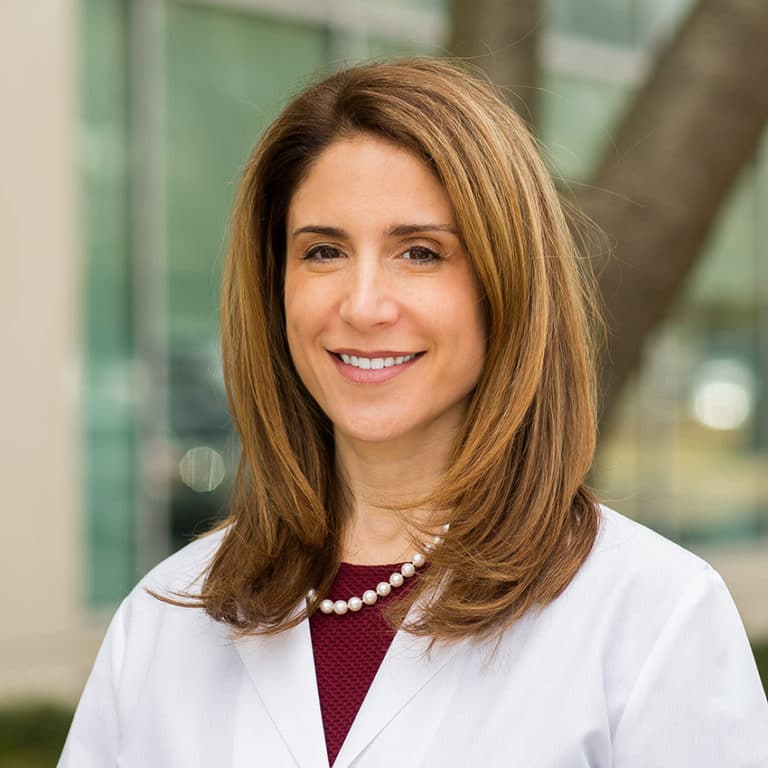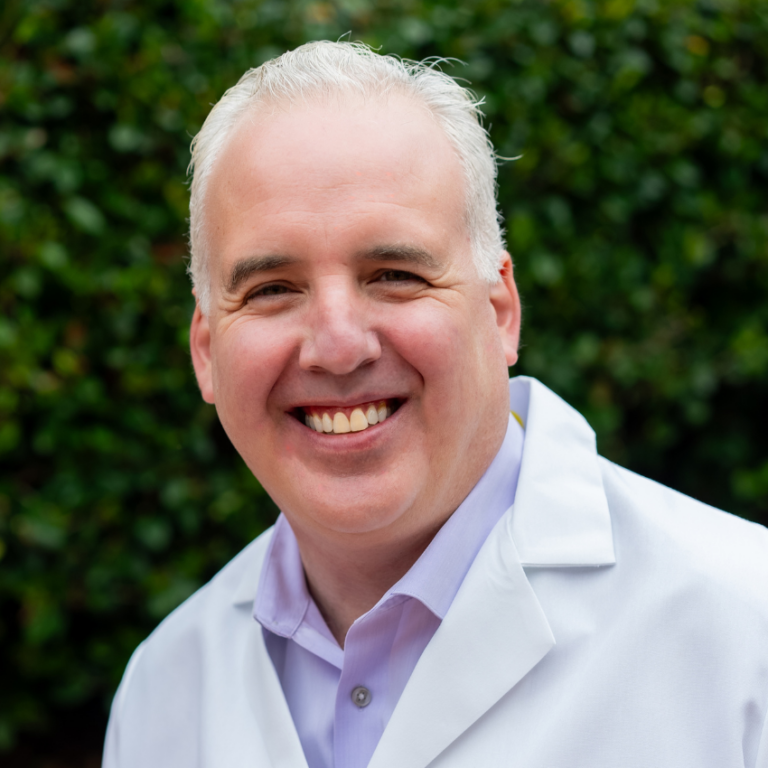Add your feed to SetSticker.com! Promote your sites and attract more customers. It costs only 100 EUROS per YEAR.
Pleasant surprises on every page! Discover new articles, displayed randomly throughout the site. Interesting content, always a click away
Shady Grove Fertility
Shady Grove FertilityThe essential guide to vitamins and nutrients for fertility and pregnancy 2 Apr 2025, 8:50 pm
Planning for pregnancy or navigating your fertility journey? The right nutrition can make all the difference. Vitamins and minerals play a key role in balancing hormones, improving egg quality, and supporting your baby’s healthy development from the very start. While a well-rounded diet is the best way to get these essential nutrients, knowing which ones to focus on can help you optimize your fertility and prepare your body for a healthy pregnancy. Let’s explore the most important vitamins and minerals, their benefits, and how to incorporate them into your daily routine.
12 key vitamins and minerals for fertility and pregnancy
- Calcium (1,000 mg daily)
- Supports strong bones and teeth for both mother and baby.
- Best sources: Milk, cheese, yogurt, sardines, dark leafy greens, almonds, and almond milk.
- Iron (18 mg preconception, 27 mg during pregnancy)
- Crucial for hormone regulation, ovulation, and oxygen transport to the fetus.
- Best sources: Lean red meat, poultry, fish, dried beans, iron-fortified cereals, and prune juice.
- Iodine (220 mcg daily)
- Essential for thyroid function and brain development in the baby.
- Best sources: Iodized salt, dairy products, seafood, eggs, and seaweed.
- Choline (450 mg daily)
- Aids brain and spinal cord development in the fetus.
- Best sources: Egg yolks, milk, beef liver, peanuts, and soy products.
- Vitamin A (770 mcg daily)
- Enhances egg quality, supports vision, skin health, and bone growth.
- Best sources: Cooked carrots, leafy greens, sweet potatoes, beef liver, eggs, and tuna.
- Vitamin C (85 mg daily)
- Enhances iron absorption and promotes healthy gums, teeth, and bones.
- Best sources: Citrus fruits, broccoli, tomatoes, and strawberries.
- Vitamin D (1,000 – 2,000 IU daily)
- Aids ovarian follicular development, blood sugar regulation, and fetal bone health.
- Best sources: Sunlight, fortified milk, and fatty fish like salmon and sardines.
- Vitamin B6 (1.9 mg daily)
- Helps with protein and carbohydrate metabolism, red blood cell formation, and nausea relief.
- Best sources: Beef, liver, pork, whole grains, and bananas.
- Vitamin B12 (2.6 mcg daily)
- Supports energy levels, red blood cell formation, and nervous system function.
- Best sources: Meat, fish, poultry, dairy products (vegetarians may need a supplement).
- Folic Acid (600 mcg daily)
- Critical for preventing birth defects of the brain and spine.
- Best sources: Leafy greens, beans, lentils, oranges, asparagus, avocado, and Brussels sprouts.
- DHA (Omega-3) (300 – 1,000 mg daily)
- Reduces inflammation, supports egg quality, and promotes brain and eye development in babies.
- Best sources: Salmon, herring, sardines, trout, and DHA-fortified eggs and dairy.
- Magnesium (200 – 400 mg daily)
- Helps balance fertility hormones, supports ovulation, sleep, and muscle relaxation.
- Best sources: Spinach, beans, avocado, cashews, almonds, peanuts, bananas, and brown rice.
Additional supplements for fertility
Some supplements, like DHEA and Alpha Lipoic Acid, have shown potential benefits but require further research.
- Inositol: Supports ovarian function, cycle regulation, and insulin sensitivity (recommended for PCOS patients).
- CoQ10: Aids in egg and sperm quality, especially for those with diminished ovarian reserve (DOR).
- N-Acetyl-Cysteine (NAC): Helps reduce oxidative stress and inflammation, particularly for those with PCOS and endometriosis.
- Alpha Lipoic Acid (ALA): Supports insulin sensitivity and sperm quality, though data on female fertility is limited.
- DHEA: May improve antral follicle count in women with low ovarian reserve but lacks conclusive evidence on pregnancy outcomes.
Choosing the right prenatal vitamin
While a balanced diet is the best way to obtain essential nutrients, a high-quality prenatal vitamin ensures you meet your daily requirements. Look for a prenatal supplement that includes iron, choline, DHA, and calcium, as many standard formulations may fall short.
Recommended brands:
- Luminary Vitamins (gummies, vegan, gluten-free)
- Theralogix
- One a Day Prenatal Advanced with Choline
- Nature Made Prenatal with DHA
- Zahler (kosher, gluten-free)
The journey to parenthood begins with a strong foundation, and proper nutrition is one of the most powerful tools at your disposal. By prioritizing a diet rich in essential vitamins and minerals—and supplementing wisely—you can support your fertility, promote a healthy pregnancy, and set your baby up for the best possible start in life. Remember, every individual’s needs are unique, so before making any changes to your supplement routine, consult with your doctor or fertility specialist to ensure you’re giving your body exactly what it needs.
Medical contribution by Alexandra Gannon, M.D.
Alexandra Gannon, M.D., is board certified in obstetrics and gynecology (OB/GYN) and reproductive endocrinology and infertility (REI). Dr. Gannon earned her medical degree from University of Oklahoma College of Medicine in Oklahoma City. She then completed her residency in OB/GYN at Wake Forest School of Medicine in Winston-Salem, North Carolina.
Nutritional contribution by Meghan Sylvester
The post The essential guide to vitamins and nutrients for fertility and pregnancy appeared first on Shady Grove Fertility.
Nutrition and lifestyle habits to support male fertility 27 Mar 2025, 3:22 pm
Male fertility plays a crucial role in conception, with sperm quality being a key factor. Nutrition and lifestyle choices significantly influence sperm health and understanding the best dietary and lifestyle practices can help improve fertility outcomes. Here’s how to optimize male fertility through diet and lifestyle changes.
Factors affecting sperm quality
Several factors can impact sperm production, motility, and overall fertility:
- Oxidative stress: A buildup of free radicals that damage sperm cells.
- Lifestyle choices: Smoking, vaping, illicit drug use, and excessive alcohol consumption.
- Obesity and poor diet: A BMI over 30 can negatively affect hormone balance and sperm quality.
- Environmental pollutants: Exposure to toxins can impair fertility.
- Advanced age and chronic diseases: Conditions like diabetes and cancer can reduce sperm function.
- Varicocele: Enlarged veins inside the scrotum that impact sperm production.
- Elevated testicular temperature: Caused by factors like frequent hot baths or tight clothing.
10 key nutrients for male fertility
- Zinc (11 mg daily)
- Supports testosterone metabolism and sperm health.
- Best sources: Beef, lamb, shrimp, oysters, lentils, chickpeas, pumpkin seeds, cashews, low-fat yogurt.
- Vitamin C (90 mg daily)
- Acts as an antioxidant to protect sperm from damage.
- Best sources: Citrus fruits, strawberries, bell peppers, kiwi, broccoli, kale.
- Vitamin D (1,000 – 2,000 IU daily)
- Linked to improved sperm motility and blood sugar regulation.
- Best sources: Wild salmon, sardines, fortified dairy, eggs, sunlight exposure.
- Folate (400 mcg daily)
- Essential for DNA synthesis and sperm health.
- Best sources: Leafy greens, asparagus, avocado, broccoli, beans, lentils, fortified grains.
- Omega-3 Fatty Acids (1,000 mg daily)
- Supports blood flow to testicles and improves sperm motility.
- Best sources: Salmon, tuna, sardines, anchovies, walnuts, omega-3 enriched eggs.
- Selenium (55 mcg daily)
- Vital for sperm development and function.
- Best sources: Brazil nuts (1-2 per day), liver, cod, halibut, salmon, tuna, eggs, shrimp, turkey.
- Lycopene
- Antioxidant that may improve sperm quality.
- Best sources: Tomatoes, watermelon, papaya, red bell peppers, asparagus, red cabbage.
- CoQ10 (100-200 mg daily)
- Enhances sperm motility and quality.
- Best sources: Meat, poultry, nuts.
- Vitamin E (15 mg daily)
- Antioxidant that supports sperm count and motility.
- Best sources: Almonds, sunflower seeds, leafy greens, avocado, egg yolk, salmon, trout.
- L-Carnitine
- Supports sperm health and energy production.
- Best sources: Meat, fish, poultry, avocado, beans.
Dietary and lifestyle recommendations for male fertility
- Prioritize a nutrient-dense diet
- Eat whole, real foods rich in vitamins, minerals, and antioxidants.
- Balance meals with protein, healthy fats, and non-starchy vegetables.
- Choose whole grains, legumes, and fiber-rich carbs to regulate blood sugar.
- Include healthy fats
- Opt for monounsaturated and omega-3 fats from olive oil, avocados, nuts, and seeds.
- Avoid trans fats from fried foods and highly processed vegetable oils.
- Limit inflammatory foods
- Reduce intake of sugar, alcohol, processed foods, and trans fats.
- Focus on anti-inflammatory foods like leafy greens, berries, nuts, and fish.
- Maintain a healthy weight
- Obesity can reduce testosterone levels and sperm count.
- Aim for regular exercise and a balanced diet to support hormone health.
- Exercise in moderation
- Engage in moderate-intensity activities like brisk walking, jogging, and resistance training.
- Avoid excessive endurance training, which may lower testosterone levels.
- Minimize environmental toxins
- Choose organic produce to reduce pesticide exposure.
- Limit exposure to plastics, industrial chemicals, and pollutants.
- Consider supplements
- While food is the best source of nutrients, multivitamins and specific antioxidants may help.
- Recommended brands:
- Luminary Vitamin Create for Men (male fertility formula)
- Luminary Vitamin Thrive for Men (daily multivitamin)
- Theralogix Conception XR Motility
- Theralogix CoQ10
- Theralogix Solo Daily Multivitamin
- Nordic Naturals Omega-3 Fish Oil (vegan option available)
Improving male fertility takes a comprehensive approach, incorporating nutrient-rich foods, healthy lifestyle habits, and targeted supplementation. Since sperm take approximately 70 days to mature, it’s important to commit to these changes for at least three months before expecting noticeable improvements.
Medical contribution by Cori Tanrikut, M.D.
Cigdem (“Cori”) Tanrikut, MD, FACS, is board certified in urology. Her research endeavors include assessing how lifestyle and medications may impact male reproductive health, sperm banking trends, and sperm-related factors. Dr. Tanrikut optimizes treatment outcomes for patients affected by male factor infertility.
Nutritional contribution by Meghan Sylvester
Sources:
- Steiner AZ, Hansen KR, Barnhart KT, Cedars MI, Legro RS, Diamond MP, Krawetz SA, Usadi R, Baker VL, Coward RM, Huang H, Wild R, Masson P, Smith JF, Santoro N, Eisenberg E, Zhang H; Reproductive Medicine Network. The effect of antioxidants on male factor infertility: the Males, Antioxidants, and Infertility (MOXI) randomized clinical trial. Fertil Steril. 2020 Mar;113(3):552-560.e3. doi: 10.1016/j.fertnstert.2019.11.008. Epub 2020 Feb 25. PMID: 32111479; PMCID: PMC7219515.
- Jenkins T, Aston K, Carrell D, DeVilbiss E, Sjaarda L, Perkins N, Mills JL, Chen Z, Sparks A, Clemons T, Chaney K, Peterson CM, Emery B, Hotaling J, Johnstone E, Schisterman E, Mumford SL. The impact of zinc and folic acid supplementation on sperm DNA methylation: results from the folic acid and zinc supplementation randomized clinical trial (FAZST). Fertil Steril. 2022
- Jan;117(1):75-85. doi: 10.1016/j.fertnstert.2021.09.009. Epub 2021 Oct 14. PMID: 34656303. Salvio G, Cutini M, Ciarloni A, Giovannini L, Perrone M, Balercia G. Coenzyme Q10 and Male Infertility: A Systematic Review. Antioxidants (Basel). 2021 May 30;10(6):874. doi: 10.3390/antiox10060874. PMID: 34070761; PMCID: PMC8226917.
The post Nutrition and lifestyle habits to support male fertility appeared first on Shady Grove Fertility.
Your first fertility appointment: What to expect 6 Mar 2025, 4:20 pm
At Shady Grove Fertility, we understand that calling to schedule your first appointment can be stressful, which is why we have a dedicated team to take your call and ensure we answer all your questions.
Scheduling your first fertility appointment
Our New Patient Center is here to help you get started with your fertility journey. When you speak with a New Patient Center liaison, they can provide you with information on financial programs, treatment options, and what to expect at your first fertility appointment, ensuring you feel prepared and confident. Many of our team members have been SGF patients themselves and deeply understand the fertility journey.
When you call to schedule, there are a few details you’ll want to have on-hand:
- your insurance card
- your partner’s demographic information, if applicable
- your fertility history
- how you were referred to SGF
When you schedule your fertility appointment, you will have the option to select:
- Preference of in-office or virtual consultation
- Preferred location – SGF has over 50 locations to choose from
- Your physician — this is the doctor who will guide you throughout your fertility journey
Preparing for your fertility appointment
Once your appointment is scheduled, you’ll receive a secure text and email from Phreesia, our HIPAA-compliant patient intake system. Through Phreesia, you’ll need to complete a few items prior to being seen for your appointment.
- Complete your new patient forms
- Upload a photo of your insurance card and driver’s license
- Provide any relevant medical records
- Include a payment method on file
Completing this paperwork at least three business days before your appointment allows your care team to review your history in advance.
If you have previous fertility or reproductive health records, please upload them to your patient portal or fax them to your chosen SGF office.
What to expect at your first fertility specialist appointment
Your initial fertility consultation is a comprehensive evaluation that typically lasts 45 to 90 minutes. During this visit, you’ll meet with your physician to discuss your medical history, fertility goals, and next steps. Your doctor will explain the recommended fertility testing, and after the appointment, your Care Coordinator will help schedule any necessary diagnostic tests
“The first fertility appointment is an opportunity for an open conversation about your family-building goals,” shares Dr. Selma Amrane, who sees patients at SGF’s K Street, Washington, D.C., location. “It’s normal to feel nervous, but our team is here to provide compassionate, patient-centered care that puts you at ease.”
For patients interested in egg freezing, diagnostic testing may need to be completed before the consultation.
After your fertility appointment
A few days following your visit, your dedicated Financial Educator will provide personalized financial and insurance information through your SGF patient portal.
Ready to take the next step?
If you’re ready to move forward with fertility care, we’re here to support you. Call our New Patient Center at 888-761-1967 or fill out our brief form to schedule your first appointment and start your journey toward parenthood with confidence.
Medical contribution by Selma Amrane, M.D.
Selma Amrane, M.D., is board certified in obstetrics and gynecology and reproductive endocrinology and infertility. She specializes in the diagnosis and treatment of infertility, including gynecologic endocrine issues, such as polycystic ovary syndrome, as well as male factor infertility and infertility resulting from endometriosis. Dr. Amrane see patients at SGF’s Washington, DC – K Street office.
The post Your first fertility appointment: What to expect appeared first on Shady Grove Fertility.
Understanding Fertility Medication 6 Mar 2025, 1:19 pm
Women who are trying to get pregnant want to do everything possible to improve their chances. Even so, many of them say that the thought of giving themselves injections of fertility medications kept them away from the treatment they needed.
Dr. Eric Levens advises that fertility medications are complex, and the process can seem intimidating, but, he says, patients complete thousands of treatment cycles every year, handling their medications expertly.
“Patients are much more apprehensive about the medications than they need to be,” Dr. Levens says. “With the support system we have in place, patients can feel comfortable with their care and confident in their ability to follow the medication plan successfully. In fact, once patients get started, we find many are surprised at how well they tolerate the medication aspect of their treatment.”
Whether you are just starting your research into fertility treatment or you are about to start a treatment cycle, it helps to know which medications are used in which types of treatment and why. It’s also comforting to know how much support you can expect for ordering, administering and affording medications. Protocols can vary greatly from patient to patient, your best resource for specific questions regarding your medication protocol will always be your medical team.
Preparing the ovaries for stimulation
Before a cycle of in vitro fertilization (IVF) in particular, many women will take birth control pills to suppress their ovaries, which are responsible for producing eggs. Dr. Levens explains, “This reduces the chance that cysts will form in the ovaries, and it allows us to control the timing of the cycle.” Birth control medication allows you and your doctor to choose the date the cycle will start and synchronizes the egg follicles so that they all start at the same stage.
In some cases, such as when a woman has low ovarian reserve, the doctor may not use birth control.
Stimulating the ovaries for IUI or ovulation induction
Whether or not a woman is ovulating on her own, her fertility treatment typically will include medications that stimulate the ovaries. Women who are not ovulating regularly may start treatment with the goal of getting their ovaries to release one egg each month. This is referred to as ovulation induction.
The drug most commonly used for ovulation induction is Clomiphene Citrate, branded as Clomid or Serophene. It’s a tablet taken orally for about five days. “Patients doing Clomid therapy with their ob/gyn are not usually monitored during a cycle,” says Dr. Levens, “but at Shady Grove Fertility, patients are monitored regularly with bloodwork and ultrasound to gauge how their bodies are responding to the medication and to reduce the risk of multiples.” For ovulation induction patients that do not respond to Clomid, frequently Follicle Stimulating Hormone (FSH) injections will be added to the medication protocol to encourage or boost ovulation.
Stimulating the ovaries for IUI with Gonadotropins
Women who ovulate regularly but are still unable to conceive, take medications with the intent to stimulate 2-3 mature eggs at a time during the cycle.
Clomid is sometimes included along with Follicle Stimulating Hormone (FSH). Patients undergoing IUI with gonadotropins are monitored closely with bloodwork and ultrasound throughout the cycle.
Stimulating the ovaries for IVF
Women who are using more advanced fertility treatments, like IVF, take medications that stimulate and mature as many eggs as possible during the cycle. FSH and Luteinizing Hormone (LH) are the hormones are involved in the natural ovulation process and used to stimulate the ovaries. “Some protocols use FSH only, but most will use a combination of FSH and LH,” says Dr. Levens. “We believe that since LH is present in a natural cycle, it’s important to include it during a treatment cycle as well.” FSH and LH are administered by patients as subcutaneous injections taken daily for 8-14 days. Subcutaneous, also referred to as Sub-Q, means the injections go into the fatty tissue under the skin, usually on the right or left side of the abdomen. The same medications, are used as in a IUI with gonadotropins cycle, except with IVF, higher quantities of the medication are used to increase the number of eggs to be developed and matured.
Preventing premature ovulation
If the eggs are released too soon in an IVF cycle, the patient will miss the window for their egg retrieval. So, in women who are high responders to ovarian stimulation, a medication called Ganirelix is added to keep the body from ovulating too soon. This injectable medication is added to your medication protocol as needed by your medical team.
Triggering egg maturation and time release
At the end of ovarian stimulation, a final injection is given that causes the eggs to fully mature so that they are ready for fertilization. This injection is strictly timed to the schedule of an insemination attempt in an IUI cycle or the egg retrieval in an IVF cycle. Depending on the protocol, patients may have a trigger shot that is a Human Chorionic Gonadotropin (hCG) or Leuprolide-Acetate. Some are given as intramuscular injections administered into the muscle upper outer quadrant of the buttock in by someone other than the patient.
Supporting implantation
No matter the treatment type being used IUI, IVF, FET, or donor egg, medication to support implantation is usually part of your medication protocol. Patients using IUI or IVF treatment start their implantation support after insemination in the case with IUI, and after the egg retrieval with IVF. Progesterone is the primary medication prescribed while for some patients, estrogen is utilized to keep the uterine lining thick. This gives the embryo the best chance of implanting.
Women who are undergoing a frozen embryo transfer (FET) cycle or a donor egg cycle frequently use Estradiol but begin them sooner; this allows the body to prepare the uterine lining before the embryo transfer. IUI patients using clomid occasionally find their uterine lining thin as a side effect of the Clomid. For these patients Estradiol can also be used to help thicken their lining prior to insemination.
In both cases, the medications will likely be continued through the first few weeks of pregnancy to support the developing embryo.
Ordering medications
Once your treatment plan has been created, your nurse will sit down with you and go over everything you’ll need to know during the cycle. Ordering medications is a top priority since you’ll need all your medications before the cycle begins.
Sonia Parker, RN, a nurse working with Dr. Levens, says patients don’t need to worry about the logistics of getting their medications because the nurses handle most of the process. “We’ll explain all the medications to you,” she says, “and we’ll put the order in to whichever pharmacy you choose. If you’re doing a price comparison, we can submit it to several pharmacies and they will call you with price quotes.”
In some cases, you’ll find that you have a choice between brand names for a medication you’ve been prescribed. For example, patients doing an IVF cycle are often given a choice between Follistim and Gonal-f, two medications that do the same thing. Sonia explains, “Your choice might hinge on price – sometimes a pharmacy will give a discount on a particular drug – or you might choose one delivery method over another one. For example, some medications comes in pre-filled syringes or dial-up style pens while others come in vials. We can explain the pros and cons of these choices to help you decide.”
Affording fertility medications
Fertility medications are expensive, so most of the choices you’ll make have to do with their cost. Sonia says your best ally in affording your medications is your nurse. “Make sure you talk to your nurse if affording the medications is an issue, because we have a lot of resources we can share with you. We usually know which pharmacies have specials and which drugs are cheaper. Sometimes the drug companies themselves will have a special or provide coupons for certain medications.”
To start, Sonia suggests that all patients double-check their insurance coverage. “A lot of patients that don’t have coverage for fertility treatment do have coverage for some or all of their medications, so it’s important to ask specifically about medication.” Often, insurance companies have a different provider for drug coverage than they do for medical coverage, so you may have to call a different company to get the necessary details.
Your insurance plan may dictate where you fill the prescription. In that case, you’ll want to make sure you use the right pharmacy to avoid having to pay out-of-pocket. Sonia adds one caveat, “We have found, in a few cases, that patients who have co-pays that are high sometimes pay more in co-pays with the pharmacy the insurance company uses than they would if they paid for the whole order at a different pharmacy. So, even if you have coverage, we can still submit your order to more than one pharmacy if you want to compare prices.”
In addition to pharmaceutical company coupons and incentives, some specialty pharmacies offer discounts, price matching, and free overnight shipping.
Most times, you’ll order from a pharmacy that specializes in fertility medications. These specialty pharmacies have nurses available 24 hours a day to answer questions. They also have dedicated insurance specialists who can check your coverage on a drug-by-drug basis to make sure that you’re maximizing your coverage and minimizing your out-of-pocket costs. They usually provide free injection supplies and free nationwide overnight delivery.
Sonia cautions that it’s important to use pharmacies that are vetted by your medical team. “We’ve had some patients recently who have found pharmacies online that advertise really low-priced drugs. When we looked into it, we found that they were overseas, so the medications weren’t inspected or regulated by the FDA.” These drugs could be contaminated or counterfeit. Plus, pharmacies in the U.S. keep strict track of lot numbers in case of recalls and make sure storage conditions are correct for each medication.
In addition to unknown pharmacies, patients should also be wary of offers to buy other patients’ leftover medications. Sonia says, “Not only is it illegal, but they could be expired or stored improperly, so it’s definitely not a good idea.”
Giving injections
Once your medications are ordered, the next step will be to learn how to administer them. For some patients, the prospect of giving themselves injections is the most intimidating aspect of fertility treatment. That’s why Shady Grove Fertility provides injection classes to all its patients.
Injection classes help patients master:
- Understanding which syringes and needles to use with which medications
- How to draw up and mix medications
- The difference between subcutaneous and intramuscular injections and how to administer each
- What to do if you miss a dose
- How to keep track of your inventory of medications so you don’t run out in the middle of your cycle.
“Patients who take the class feel more confident in their ability to follow their treatment plan, and I believe it really reduces their stress level.”
Sonia Parker, RN agrees. “I teach one of the injection classes, and I find that a lot of patients’ fears are based on misunderstandings or false information they’ve read online. Those kinds of issues are easy to clear up. Also, patients in the class get to meet other couples that are going through treatment at the same time. They realize that they have similar questions and fears, so there’s a supportive aspect to the class as well.”
Sonia always reminds patients that, besides the class, there are many resources available that they can call on anytime. “There’s always a nurse available during monitoring appointments. Patients can also call their own nurse or doctor – and there is an on-call nurse at the specialty pharmacies that is available 24 hours. So, patients should never hesitate to get their questions answered.”
Monitoring and dosing
Morning monitoring is an important part of most treatment cycles. Patients have appointments, almost daily, during the ovarian stimulation phase of their treatment to gauge how they are responding to their medications. At these appointments, blood is drawn to check your estrogen level and a vaginal ultrasound is performed to count and measure your egg follicles. The results of these tests are used to determine the dosing of your medications going forward.
Every time you come in for monitoring, you’ll receive a phone call from your nurse that afternoon. The nurse will tell you the dosing of each medication you should take that night and when to come in for the next appointment.
Sonia adds, “The call from your nurse is a great opportunity to ask any questions you have about your medications. You can also review your medication inventory with your nurse. She will be able to estimate the amount of medication you’ll need for the next few days. You’ll want to pay particular attention to this before a holiday or weekend.”
Fertility medication side effects
Because they affect your hormones, these medications can produce side effects, such as headaches, irritability, fatigue, and bloating that are similar to symptoms of PMS or menstruation. After an insemination or embryo transfer, you’ll be cautioned that the side effects can be mistaken for pregnancy symptoms but do not mean that you are or aren’t pregnant.
Some women, however, have no side effects. “Everyone is so different in how they respond to the medications that it’s really hard to say how it will affect a particular woman,” says Dr. Levens. “The vast majority of patients tolerate the medications well.”
Although rare, one possible side effect from ovarian stimulation is ovarian hyperstimulation, which occurs in about 1-2% cycles. Ovarian hyperstimulation happens when a woman’s body over-responds to stimulation medications. This can cause fluid to build up in the abdomen and pelvis and possibly lead to blood clots. The good news is that this condition can usually be prevented through close monitoring of a woman’s response to medications. If there are signs that you might be moving toward hyperstimulation, your doctor will reduce the amount of medications you’re taking to avoid it.
Medications are one part of a bigger picture
The prospect of a box full of medications arriving at your house can be daunting, but it also signals the beginning of the hopeful and exciting process of fertility treatment. “My advice to patients who feel nervous about the medications is to take it one step at a time,” says Sonia. “In my experience, patients who take the injections class have very few problems or worries about their meds.”
Dr. Levens recommends staying focused on the big picture. “Medications are just one instrument in the complex symphony of treatment. You can be assured that we are working hard to find the best medication regimen for you, that will help us achieve your ultimate goal of having a baby.”
Most importantly, don’t let the fear of doing injections for two weeks keep you from treatment that could change your life forever.
To schedule an appointment with one of our physicians, please speak with one of our New Patient Liaisons by calling 888-761-1967.
Medical contribution by Eric D. Levens, M.D.
Eric D. Levens, M.D., FACOG, board certified in obstetrics and gynecology and subspecialty board certified in reproductive endocrinology and infertility. Dr. Levens is committed to improving the success of fertility care through active research and national advocacy. He sees SGF patients at the Fairfax, Virginia, office.
Editor’s Note: This post was originally published 2014 with non-contextual edits applied in March 2025.
The post Understanding Fertility Medication appeared first on Shady Grove Fertility.
In the news: Why more women are freezing their fertility for the future 17 Feb 2025, 3:09 pm
Shady Grove Fertility reproductive endocrinologist Dr. Melanie Ochalski sat down with FOX43 News in York, Pennsylvania, to discuss to discuss the growing trend of egg freezing among Millennial and Gen Z women. As more individuals delay parenthood for career, personal, or medical reasons, fertility preservation is becoming an essential part of family planning.
Watch the full story here: Freezing fertility for the future | Health Smart | fox43.com
Medical contribution by Melanie Ochalski, M.D.
Melanie Ochalski, M.D. is board certified in obstetrics and gynecology and reproductive endocrinology and infertility. Dr. Ochalski has published numerous peer-reviewed scientific manuscripts and review articles in many leading scientific journals, and has been invited to present at national meetings. She sees patients at SGF’s Lancaster and York, PA offices.
Learn more about fertility preservation
The post In the news: Why more women are freezing their fertility for the future appeared first on Shady Grove Fertility.
Fertility care for Black women: Understanding disparities and accessing support 13 Feb 2025, 7:56 pm
At SGF, we believe everyone deserves the chance to build their family. However, research shows that Black women face unique challenges when it comes to infertility awareness, access to care, and treatment success rates. By acknowledging these disparities and offering solutions, SGF is committed to empowering Black women with the resources, support, and expert care they deserve.
Meet SGF’s Black fertility specialists
Finding a fertility specialist who understands your unique concerns can make all the difference. At SGF, we are proud to have highly experienced fertility specialists who are dedicated to serving the Black community. Our team understands the cultural, medical, and emotional aspects of fertility treatment and is here to guide you every step of the way.
Dr. Jerrine Morris, one of SGF’s esteemed fertility specialists, is passionate about breaking down barriers to fertility care. “I became a doctor to help and advocate for underserved populations,” shares Dr. Morris. “By providing education, resources, and compassionate care, we can help dismantle stigmas surrounding infertility and encourage earlier treatment, leading to better outcomes.”
Benjamin S. Harris, M.D., M.P.H.
Medical Director, Richmond
Desireé McCarthy-Keith, M.D., M.P.H.
Medical Director, Atlanta
Understanding racial disparities in fertility care
Research has shown that Black women are half as likely to seek fertility treatment services than white women. Several factors contribute to this disparity, including:
Limited access to care due to socioeconomic factors. Even when patients have access to fertility care, Black women seek an infertility evaluation at lower rates and discontinue fertility treatments at higher rates as compared to other patients.1
Seeking fertility treatment later. Due to educational barriers and stigmas surrounding reproductive care, Black women are often seeking fertility care later than other patient populations.
Mistrust in the healthcare system stemming from historical inequalities and implicit biases.
Higher infertility rates. Research shows that Black women experience infertility more often than other demographics.
Lower IVF success rates. Research shows Black women undergoing fertility treatments such as in vitro fertilization (IVF), have lower clinical pregnancy and live birth rates compared with white women even after controlling for various factors.2
In an award-winning study, SGF researchers found that Black patients respond just as well to fertility medications that stimulate egg production by producing as many eggs and often producing more good-quality embryos than white patients. However, Black women still had lower pregnancy rates and higher miscarriage rates.3
While clinical factors such as uterine fibroids have been suggested to influence this disparity, implicit biases in referral patterns and the care given to women of color also play a role. This highlights the importance of early intervention, comprehensive care, and continued research to close the gap in fertility treatment success.
It is essential to recognize and understand the racial disparities that exist in fertility care so we can better support our patients. SGF is dedicated to continuing research on racial and ethnic disparities and providing better access to fertility care for Black women through providing resources and support for our patients.
Four essential tips for Black women navigating fertility care
1. Seek fertility care sooner
Age is the number one predictor of female fertility. However, stigmas surrounding infertility, cultural misconceptions about hyperfertility, lack of trust in medical professionals often lead Black women to delay seeking fertility treatment.
By seeking a fertility evaluation sooner rather than later, patients can receive an early diagnosis and maximize their chances of successful fertility treatment. Our compassionate care team is here to listen, support, and ultimately help you achieve your family-building goals.
2. Address pre-existing medical conditions
Black women disproportionately affected by certain fertility-related conditions, including:
- Uterine fibroids (which affect up to 80% of Black women by age 50)4
- Blocked Fallopian tubes
- Polycystic ovary syndrome (PCOS)
- Obesity and metabolic disorders
By staying proactive with regular OB/GYN visits and addressing these conditions early, you can improve your reproductive health and fertility treatment success.
3. Use SGF’s fertility resources and support
You don’t have to go through fertility treatment alone. SGF offers free educational resources, support groups, and events to help patients feel informed and empowered.
- Explore SGF’s Resource Library, featuring over 2,000 articles, videos, and guides.
- Join a free fertility webinar to learn about treatment options from our specialists.
- Find community support through SGF’s dedicated fertility support groups.
- Engage with fellow patients online. Follow SGF on Instagram.
4. Learn about insurance coverage and SGF’s financial programs and grants
SGF participates with many insurance plans and offers innovative financial programs and discounts to make fertility treatment more affordable.
Insurance coverage: Approximately 70% of SGF patients have some coverage for fertility treatment and 90% have coverage for their initial consultation.
Financial programs:
- Shared Risk 100% Refund Program
- Multi-Cycle Discount for IVF
- Shared Help Discount Program, an income-based program
- Military Discounts
- Medication Discount Program
To learn more about insurance coverage and financial assistance options, call our New Patient Center at 1-888-761-1967.
Breaking barriers, building families
At SGF, we recognize the unique challenges Black women face in their fertility journey, and we are committed to providing compassionate, expert care to help you achieve your dream of parenthood.
With leading Black fertility doctors, groundbreaking research, and accessible financial programs, SGF is here to support you every step of the way. If you’re ready to take the first step, schedule a consultation with an SGF fertility specialist today.
Your family-building journey starts here.
Medical contribution by Jerrine R. Morris, M.D., M.P.H.
Jerrine R. Morris, M.D., M.P.H., is board certified in Obstetrics and Gynecology (OB/GYN) and Reproductive Endocrinology and Infertility (REI). Dr. Morris earned her medical degree at Virginia Commonwealth University School of Medicine in Richmond, Virginia.
- Korkidakis, Ann et al. (2024) “Determinants of utilization of infertility services by race and ethnicity in a state with a comprehensive infertility mandate.” Fertility and Sterility, In press.
- Jackson-Bey, T., Morris, J., Jasper, E., Velez Edwards, DR., Thornton, K., Richard-Davis, G., Plowden, T. (2021) “Systematic Review of Racial and Ethnic Disparities in Reproductive Endocrinology and Infertility: Where Do We Stand Today?” Fertility and Sterility Reviews. https://doi.org/10.1016/j.xfnr.2021.05.001.
- Bishop, L. A., Devine, K., Sasson, I. E., Plowden, T., Hill, M. J., DeCherney, A. H., Richter, K. (2018). “African American patients experience reduced pregnancy, higher pregnancy loss, and lower live birth from IVF embryo transfers despite producing more oocytes and more transfer quality embryos than Caucasian patients.” Fertility and Sterility, Volume 110, Issue 4, e6.
- Eltoukhi H.M., Modi M.N., Weston M., Armstrong A.Y., Stewart E.A. “The health disparities of uterine fibroid tumors for African American women: a public health issue.” Am J Obstet Gynecol. 2014 Mar;210(3):194-9. doi: 10.1016/j.ajog.2013.08.008. Epub 2013 Aug 11. PMID: 23942040; PMCID: PMC3874080.
The post Fertility care for Black women: Understanding disparities and accessing support appeared first on Shady Grove Fertility.
In the news: When is it time to see a fertility specialist? 23 Jan 2025, 9:43 pm
Shady Grove Fertility reproductive endocrinologist Dr. Nicole Marchetto sat down with WGAL News in Lancaster, PA to discuss when individuals and couples who want to build their family should consider a consultation with a fertility specialist, based on factors like age, how long they’ve been trying to conceive, and other medical conditions or circumstances that would warrant an immediate consult. Dr. Marchetto also talked about what patients can expect at their first appointment.
Watch the full story here: When should couples see a fertility specialist?
Medical contribution by Nicole M. Marchetto, M.D., M.P.H.
Nicole M. Marchetto, M.D., M.P.H., is board certified in Obstetrics and Gynecology (OB/GYN) and Reproductive Endocrinology and Infertility (REI). Dr. Marchetto earned her medical degree from Drexel University College of Medicine in Philadelphia, Pennsylvania.
Learn more about when to get started
The post In the news: When is it time to see a fertility specialist? appeared first on Shady Grove Fertility.
New thyroid health guidelines impact on fertility care 21 Jan 2025, 6:46 pm
The American Society for Reproductive Medicine (ASRM) released updated guidelines regarding subclinical hypothyroidism. In alignment with these recommendations, Shady Grove Fertility has made a pivotal shift in how we approach thyroid health during the fertility journey. Keep reading to learn about the impact on fertility testing at SGF.
What is subclinical hypothyroidism?
People experiencing subclinical hypothyroidism have an elevated thyroid-stimulating hormone (TSH) level with normal thyroid hormone levels (free T4). It has often been debated whether this condition affects fertility or pregnancy outcomes. Erring on the side of caution, practices routinely included thyroid testing as part of baseline fertility evaluations, as abnormal TSH levels were thought to potentially impair conception or pregnancy.
What do the new ASRM guidelines say?
The new ASRM guidelines provide clear evidence that routine thyroid testing in asymptomatic individuals — those without a personal or family history of thyroid disease or clinical signs — is not necessary. Here are the key takeaways:
- Limited evidence of impact on fertility: The data do not support that mild elevations in TSH adversely affect the chances of conception or pregnancy outcomes in most infertile individuals.
- Targeted testing is more effective: Testing should be reserved for individuals with symptoms of thyroid dysfunction, a known history of thyroid disease, or specific risk factors.
- Reducing unnecessary interventions: Treating mild TSH elevations in patients without symptoms has not been shown to improve fertility outcomes and may lead to unnecessary treatment or stress.
How will this change fertility testing at SGF?
In alignment with the research, SGF will no longer include routine thyroid testing as part of baseline fertility evaluations for asymptomatic patients. Instead, we will adopt a more targeted approach to ensure that testing is performed only when there are clinical indications, such as a personal or family history of thyroid disease, symptoms of thyroid dysfunction (e.g., fatigue, weight changes, or sensitivity to cold), or other risk factors, such as autoimmune conditions.
What does this mean for you?
If you’re beginning your fertility journey at SGF, this change underscores our commitment to personalized, evidence-based care. Here’s how it benefits you:
- Streamlined testing: By avoiding unnecessary tests, we simplify the evaluation process, saving time and resources.
- Reduced anxiety: For many patients, an elevated TSH result can cause unnecessary worry. With this change, we focus only on clinically significant findings.
- Improved outcomes: By adhering to guidelines grounded in robust research, we ensure that your care is optimized for the best possible results.
A focus on what matters most
“We understand that fertility care is deeply personal, and every decision matters. By adopting the latest ASRM guidelines, we reaffirm our commitment to delivering care that is not only cutting-edge but also compassionate and patient-focused,” shares Micah J. Hill, D.O. “These updates ensure that your journey with SGF is rooted in the most current scientific understanding, free from unnecessary interventions, and tailored to individual needs.”
If you have questions about these changes or your specific care plan, our team is here to help. We encourage you to reach out to your SGF physician or care team to discuss any concerns or next steps.
Medical contribution by Micah J. Hill, D.O.
Micah J. Hill, D.O., is board certified in Obstetrics and Gynecology (OB/GYN) as well as Reproductive Endocrinology and Infertility (REI). Dr. Hill completed his residency in OB/GYN at Tripler Army Medical Center, Honolulu, Hawaii. He then completed his fellowship in REI at the National Institutes of Health in Bethesda, Maryland.
The post New thyroid health guidelines impact on fertility care appeared first on Shady Grove Fertility.
Prepare your body for a healthy pregnancy 19 Dec 2024, 3:01 pm
Adopting healthy lifestyle habits can make all the difference in preparing your body to conceive. These essential habits can optimize your fertility health, setting the stage for a successful pregnancy and journey to parenthood.
Dr. Bailey Gill McAlas, a fertility specialist at SGF’s Virginia Beach location, shares 7 evidence-based tips for preparing your body for pregnancy and boosting your fertility potential.
1. Stay physically active
Achieving and maintaining a healthy weight (BMI 18.5-24.9) is one of the most significant ways to improve your chances of conception and support a healthy pregnancy. Both underweight and overweight individuals face fertility challenges such as irregular ovulation and potential risks during pregnancy which can often be minimized with balanced nutrition, exercise, and lifestyle changes.
For individuals with a higher BMI, studies show that losing just 5–10% of body weight can dramatically improve fertility outcomes. Regular physical activity — whether it’s walking, yoga, or swimming — can also enhance your overall well-being as you prepare for pregnancy.
Related resource: Can I exercise during fertility treatment?
2. Quit or limit harmful habits
Caffeine, alcohol, smoking, and recreational drug use can negatively affect fertility and increase the risk of miscarriage. Reducing or eliminating these habits can significantly support conception and a healthy pregnancy. Limiting caffeine to less than 200 mg per day (about one 12 oz cup of coffee) is recommended when trying to conceive and while pregnant. Women who smoke are twice as likely to experience infertility compared to non-smokers and are at greater risk of early menopause. Alcohol and marijuana use have been linked to obstetric complications and should be reduced or eliminated. Smoking, heavy alcohol use and marijuana also impact male fertility.
Helpful resource: Read the Guide to Quitting Smoking
3. Manage stress effectively
The emotional challenges of trying to conceive can feel overwhelming. While stress doesn’t directly reduce your chances of conception, studies show that high stress levels are linked to patients discontinuing fertility treatment prematurely.
Consider joining a support group or trying mindfulness practices such as yoga, acupuncture, or meditation. Taking care of your emotional health can make the journey more manageable and enjoyable.
Explore: SGF’s Wellness Center
4. Review medications and take prenatal vitamins
Before trying to conceive, review your current medications with your general gynecologist to ensure they are safe for pregnancy. Some prescriptions may need to be adjusted to support a healthy pregnancy.
Start taking a prenatal vitamin with at least 400 micrograms of folic acid at least three months before conception. Folic acid helps prevent neural tube defects and other birth complications. Low vitamin D levels can also affect fertility, so SGF recommends a daily supplement of 2,000 IU of vitamin D3. Shady Grove Fertility is proud to recommend Luminary Vitamins and Theralogix to offer high-quality, evidence-based nutritional supplements patients can trust.
In addition to prenatal supplements, it’s important to include 1,000 mg of calcium daily for bone health. Prenatal vitamins do not typically provide this amount, so additional calcium supplementation is necessary, especially during pregnancy.
Learn more: How Vitamin D supports fertility
5. Update your medical history and vaccinations
Understanding your medical history and ensuring your vaccinations are up to date can help protect you and your baby. Vaccines such as those for influenza, chickenpox, measles, mumps, and rubella may be recommended before pregnancy.
SGF also follows guidance from the American College of Obstetricians and Gynecologists (ACOG) and recommends the COVID-19 vaccine for individuals planning a pregnancy.
6. Establish or maintain your healthcare team
Every woman should have a primary care physician (PCP) and a gynecologist. Your fertility doctor may partner with your PCP or gynecologist along your fertility journey, so it’s important that you remain up to date with an annual exam with each of these providers. If you have not had an annual exam with both a PCP and gynecologist, please schedule an appointment. If you need to establish care with a new PCP or gynecologist, your insurance carrier’s website offers a list of local providers who are accepting new patients.
7. Address health conditions that may affect fertility
Conditions like pre-diabetes or a low-functioning thyroid can impact fertility and pregnancy outcomes. A pre-conception health check with your primary care physician or gynecologist can help identify and treat these conditions early, reducing complications and supporting a healthy pregnancy.
Taking proactive steps to manage your health can increase your chances of conceiving and help ensure the best outcomes for both you and your baby.
Small steps lead to big changes
You don’t have to implement every tip at once. Choose one or two changes to focus on at a time and build from there. Preparing for pregnancy is about optimizing your physical and mental well-being, one step at a time.
At SGF, we’re here to support you through every stage of your fertility journey. If you’re ready to take the next step or have questions, reach out to schedule a consultation with one of our fertility specialists. Together, we’ll help you prepare your body — and your heart — for the exciting journey to parenthood.
Medical contribution by Bailey Gill McAlas, M.D.
Bailey Gill McAlas, M.D., is a dedicated and compassionate physician who brings a wealth of experience and a deep commitment to helping individuals and couples on their path to parenthood.
Dr. McAlas completed her residency in Obstetrics and Gynecology at NYU Langone Hospital Long Island and then pursued a fellowship in Reproductive Endocrinology and Infertility at the Cleveland Clinic Foundation.
Editor’s Note: This post was originally published in October 2015 and has been updated for accuracy and comprehensiveness as of December 2024.
Stage-specific gummies designed by fertility doctors
The post Prepare your body for a healthy pregnancy appeared first on Shady Grove Fertility.
Physician-led study examines weight changes associated with egg retrieval cycles conducted during fertility treatments 18 Dec 2024, 4:25 pm
A recent study conducted by the research team at SGF and presented at the 2024 ASRM Congress and Expo has provided some reassuring news about weight changes during egg retrieval cycles for patients undergoing IVF or egg freezing.
“Setting accurate expectations is key,” says Cassandra Roeca, M.D., SGF Colorado reproductive endocrinologist and research contributor. “This study allows us to give patients clear, data-backed information about what to expect, helping them feel more in control. By understanding what factors contribute to weight changes, we can offer more personalized care and ensure that our patients are well-supported throughout their treatment.”
Will I gain weight during fertility treatment?
The research looked at over 22,000 cycles of ovarian stimulation, examining how patients’ weight fluctuated before and after an egg retrieval. On average, patients gained about 1.4 pounds, but this varied quite a bit, with some losing up to 5 pounds and others gaining as much as 15 pounds.
Certain factors were linked to a higher likelihood of weight gain including having a lower initial body mass index (BMI) and retrieving a larger number of eggs. The study also found that patients who developed ovarian hyperstimulation syndrome (OHSS) tended to gain more weight and took longer to return to their normal weight.
The retrospective cohort study, Evaluation of Mean Changes in Weight During and After Ovarian Stimulation, was presented at this year’s ASRM Scientific Congress & Expo. Learn more about ASRM 2024.
How long will it take for my body to go back to normal after fertility treatment?
The good news is that this weight gain is usually temporary, and most patients return to their normal weight within two weeks of egg retrieval. “We hope this new research gives patients peace of mind,” adds Dr. Roeca. “Knowing that any weight gain during treatment is typically modest and temporary can help reduce stress and improve your overall experience.”
By understanding what might happen to your body during an egg retrieval cycle, you can better plan ahead and stay in control of your health.
Tips for managing weight during ovarian stimulation
While the study shows that weight changes are usually minor and temporary, it’s natural to want to feel your best during fertility treatments. Here are a few tips to help manage any weight fluctuations:
- Stay hydrated Drinking enough water helps reduce bloating and keeps your body functioning optimally during treatment.
- Eat balanced meals Focus on whole foods like fruits, vegetables, lean proteins, and healthy fats, which can help you feel energized and maintain a steady weight.
- Gentle movement Light exercise, like walking or cycling, can improve circulation and help with any discomfort or bloating.
- Talk to your doctor If you’re concerned about weight changes or feel uncomfortable, don’t hesitate to bring it up during your appointments. Your care team can provide personalized advice.
Take the next step
Fertility treatments can be an emotional and physical rollercoaster but having the right information can make all the difference. If you’re concerned about how your body might change during ovarian stimulation, this study offers reassuring news: any weight changes are usually minor and short-lived, helping you focus on what really matters — your path to parenthood.
Medical contribution by Cassandra Roeca, M.D.
Cassandra Roeca, M.D., is board certified in obstetrics and gynecology and reproductive endocrinology and infertility. Dr. Roeca is passionate about fertility preservation in patients with cancer or medical diagnoses that place them at risk of infertility. She sees patients at SGF’s Denver, Colorado office.
The post Physician-led study examines weight changes associated with egg retrieval cycles conducted during fertility treatments appeared first on Shady Grove Fertility.






















